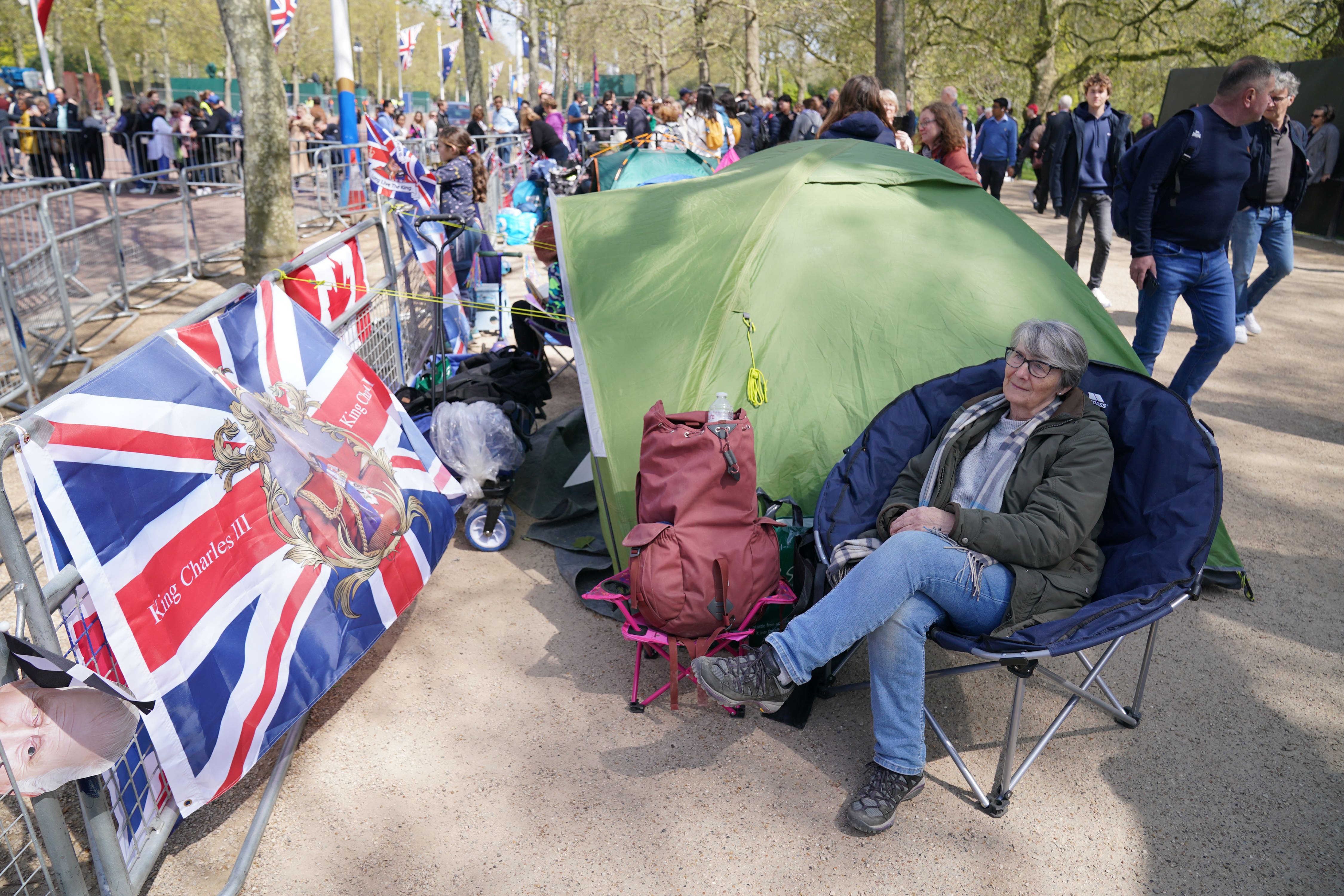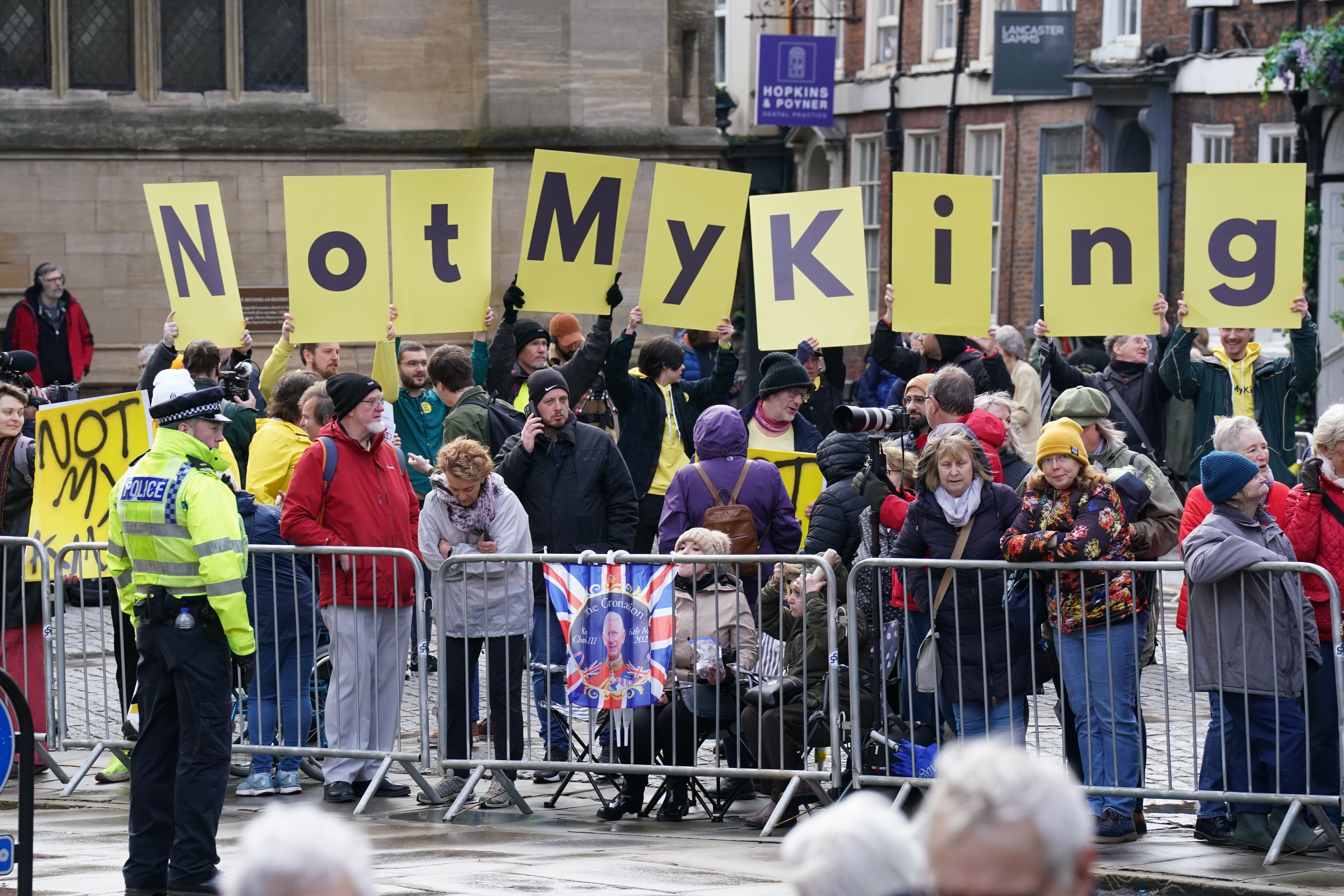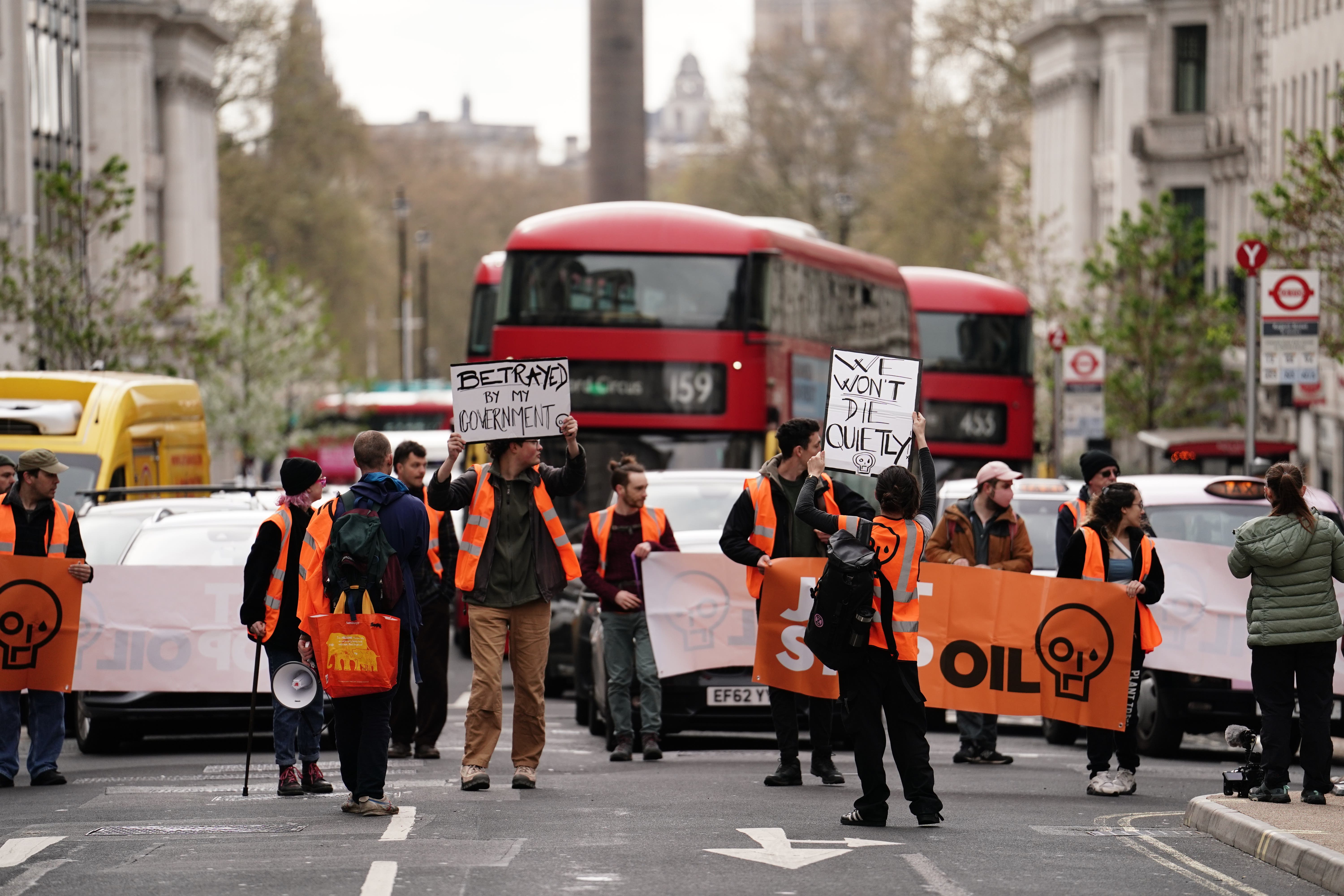
The King’s coronation will be a “complex”, multi-pronged operation for police, who are working to stem potential terror threats, disruptive protests and criminal opportunists in dense crowds.
A thousand of officers are being drawn from across the UK, overseas territories and crown dependencies for the occasion, which comes months after a huge operation to protect the funeral of Queen Elizabeth II.
There will be more than 29,000 police officer deployments in the lead up to the coronation, and the day itself will see over 11,500 officers on duty - the largest one-day mobilisation seen in decades.
The Independent understands that authorities are bracing for significant potential disruption from protests, while monitoring jihadists, neo-Nazis and other extremists who revile the royal family as a symbol of the British state.
Metropolitan Police deputy assistant commissioner Ade Adelekan said there would be “a multi layered approach to security”.
“There is a visible presence which is you will see, and as you will expect there is a significant presence that you won’t see but hopefully helps to keep the people of London safe, and helps deliver what should be a huge moment of national significance and celebration,” he added.
Armed officers will be deployed to guard coronation attendees and foreign dignitaries, while police are also responsible for ensuring the locations where events are held are secure.
Search teams with dogs will be sweeping the procession route, from Buckingham Palace to Westminster Abbey, for potential threats hidden in phone boxes, drains, bins and other everyday objects before sealing roads off.
Police marine units will be patrolling the Thames, snipers will be deployed on rooftops, as well as armed officers on overt and covert patrol to protect crowds and high-profile figures attending the coronation.
With the date announced months in advance, any hostile actors have had longer to plan for the event than they did for the Queen’s funeral, but the security services have also had longer to track and mitigate any threats.
Physical barriers, as well as a heavy police presence, will be in place to ensure the safety of both dignitaries and members of the public expected to pack London’s streets for the occasion.

Officers trained in “behaviour detection techniques” will be monitoring crowds, looking for people behaving suspiciously or signs of potential incidents.
A former royal protection officer told The Independent that the solemnity of the Queen’s funeral suppressed protest groups who did not want to score an “own goal” by generating public outrage.
“Those who wish to cause mayhem didn’t, but it’s well-documented now that republican and environmental groups are looking to get their cause across,” Simon Morgan said. “The risks are slightly different this time. Even though the King has said he’s going to scale down the coronation, the people attending are still senior royals, government figures and global dignitaries.
“It’s a multifaceted threat event and the response to that is quite complex.”
The anti-monarchy campaign group Republic has announced that it will not be mounting any disruptive stunts on 6 May, instead organising protests along the procession route and a “not my King” rally in Trafalgar Square.
However, authorities fear other organisations or lone demonstrators may attempt to cause disorder or block roads, following government vows to crack down on highway obstruction and “slow walking” protests.

Mr Adelekan said officers would not intervene over someone merely “holding a placard” in London, but would “take swift action” if crimes are committed.
A controversial package of new laws came into force when the Public Order Act received royal assent on Tuesday, making it illegal for protesters to lock onto objects or each other, or “interfere with key national infrastructure”.
Suella Braverman, the home secretary, called for police to “make full use” of the new powers and hit out at “so-called ‘eco-warriors’ causing disruption and wasting millions of pounds of taxpayer money”.
“We are giving our police and courts the tools they need to stop this chaos,” she added.
The law creates a new threshold for police intervention against “serious disruption”, including hindrance to journeys, deliveries and services, allowing the arrest of demonstrators who break any conditions imposed.
Mr Adelekan said the new law was “open to interpretation”, adding: “That doesn't apply for someone who's holding a placard and the new laws do not deal with that at the present time. If it moves into serious disruption or into criminal matters, then we will deal with those.

“We are confident that you will get the appropriate response that has the right legal framework, which delivers the results that we want, and a great celebration for all of us.”
The Metropolitan Police has also been notified of 1,800 events elsewhere in London, such as street parties, and said it would be looking after people attending those and “other daily business” in the capital.
Gavin Stephens, chair of the National Police Chiefs’ Council, told The Independent that forces from “right across the UK” would be involved in the huge operation.
“Policing has had a very important role ensuring the safety of everybody involved in the Platinum Jubilee and Queen’s funeral, and we’ll be very proud to do so again next week,” he added.
Asked whether the transfer of officers from regional forces into London would affect communities outside the capital, Mr Stephens said: “We have strong resilience in policing, one of my responsibilities is coordinating that national effort. We have been working very hard with colleagues in the Metropolitan Police to ensure it’s a safe and secure and momentous time in our history.”
Mr Morgan, now the director of operations for security firm Trojan Consultancy, said that plans had been underway for “many years” under the codename Operation Golden Orb.
He said senior officers would be assessing and adapting the operation following the Queen’s death, and checking for any changes in the terror threat after a rise in dissident republican activity in Northern Ireland.
Mr Morgan said that intelligence analysis would also be run on royal stalkers and fantasists “fixated” on the King and his family, and that officers on the ground would also have to deal with “ad hoc criminality” such as pickpockets and sexual offenders in crowds.
“It’s a massive policing operation,” he added. “You’re protecting the individuals but also the office and what it stands for, and what that in turn looks like for His Majesty’s government and how that is seen across the globe.
“It’s high stakes - if anything goes wrong it’s immediately broadcast and it reflects on Britain’s standing in the world.”







